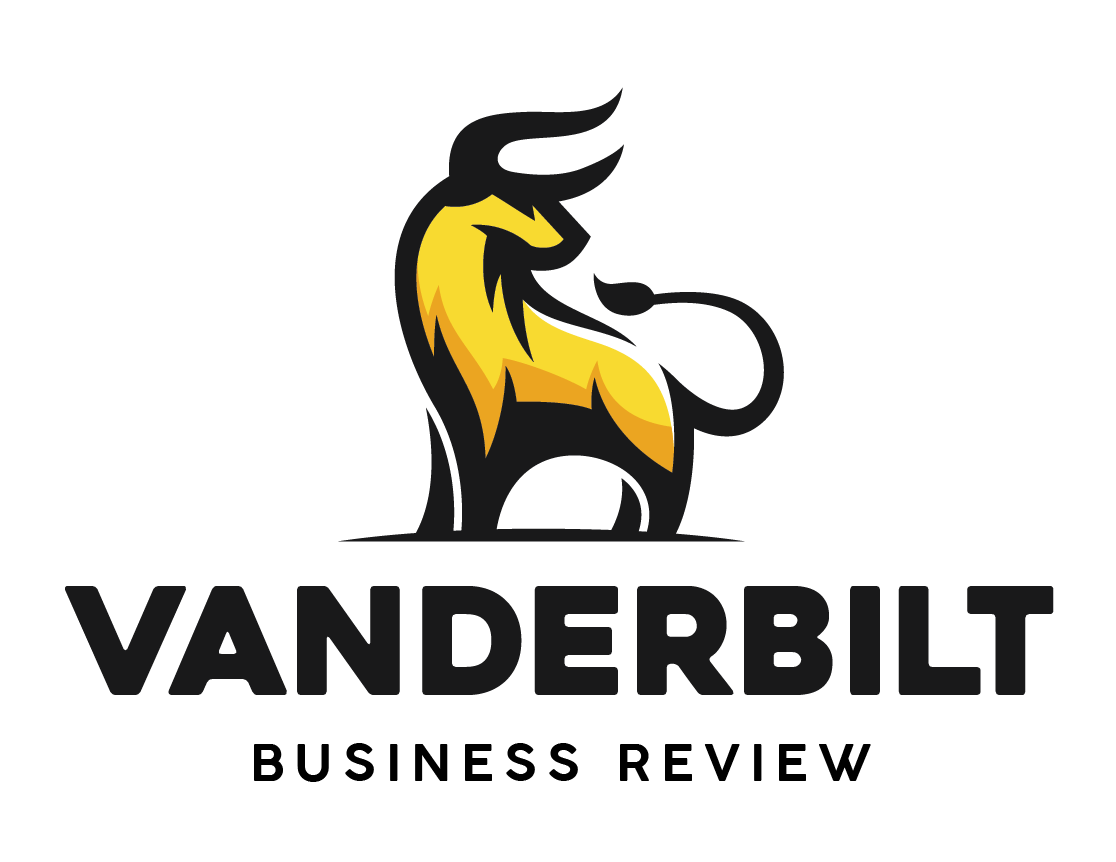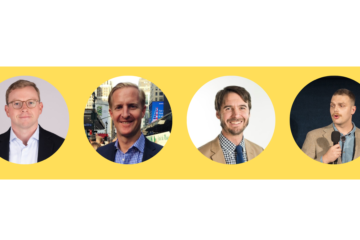By: Jaime Svinth
As a university with no undergraduate business school, Vanderbilt leaves many students yearning for the business mentorship, comradery, and networking given at other institutions. Enter: business fraternity student organizations. Delta Sigma Pi and Alpha Kappa Psi are two business fraternity organizations on campus started by students to bring together those interested in pursuing careers in the business world.
Another semester means another pledge class for business fraternity AKPsi, and another chance for business-minded students to join an organization that bolsters their passion.
Here’s a Vanderbilt Business Review interview with recruitment chair Emilio Karakey to give you the insight you need to ace your spring 2021 application. Karakey is a junior who joined AKPsi spring of 2020 following his sophomore year transfer from Trinity College. He is an Economics major with a Business minor and has interests in finance and mentorship. Karakey went through the AKPsi application process twice: once his sophomore year fall, and once his sophomore year spring, which was followed by his acceptance.
Q: What is your role in AKPsi?
A: I really wanted to get involved with mentorship. As I said, when I went through diversity programs at trinity and Vanderbilt, I got a lot of advice from a lot of really intelligent people. I had no shot at getting any interviews, and they whipped me into shape and made me such a better interviewer. I know that I essentially would not have a job without those programs and training. I knew that I wanted to share the wealth and pay it forward and help other students that might not have access to those opportunities. Because of that, I wanted to apply to mentorship roles on campus, so I applied to be a recruitment chair, and I got it. For the most part it’s me, Michael Berry and Sarah Fishbein in charge of recruitment for this semester. This is my first time doing anything like this for AKPsi, and I’m having a great time so far.
Q: What does the application process look like for anyone that is looking to apply?
A: Before you submit your resume, due this Friday, we give you the option to go to the information sessions to learn more about AKPsi and have one-on-one coffee chats with a brother to talk about the AKPsi experience, and we have resume workshops. You just have to submit your resume and include things that you’re interested in and what you’re passionate about just to get a more holistic view as to who you are as a person. There are four rounds in total.
First round is the resume round. Students just submit their resume there’s no cover letter or anything like that. The second round, when it’s in person, involves an elevator pitch. Because everything has to be virtual, we have applicants submit an elevator pitch video submission and then the whole fraternity decides who they want for the next round.
Sometimes there’s an intermediate round, sometimes there isn’t. There might be a few interviews, there might not be, depending on how many competitive applicants we have.
Then there’s the final round, which is the most intense round, especially in person. It’s essentially a speed-dating round where there are two rooms with twenty brothers in them, answer one interview question for two to three minutes, and then switch over to another brother in another seat. Over the course of an hour, you answer about 40 questions, but each is with a different brother. The goal of those final rounds is so you get to meet as many people from the fraternity as you can through the application process.
Q: What do you look for in an applicant? If you looked at an application right now, what would show you that an applicant has the potential to do well in the frat?
A: I’d say first is intelligence. I don’t know how to not put it bluntly–we want people who are intellectually capable, who can think critically, who can analyze situations, and who have the opportunities to be great leaders. When we look at resumes, GPA matters, standardized test scores matter. They are imperfect measures, but they are good proxy measures for how much effort you’re willing to put into a task and how easily you can accomplish a certain task. That’s definitely one of the main things.
Two would be dedication to AKPsi. Its tough to determine what that is. But, the kind of people that are dedicated to AKPsi are the people who have a certain area of business that they’re pretty passionate about. My thing was that I was passionate about mentorship and recruiting. I conveyed that in my application, I conveyed that in my resume, and I conveyed that in my interviews. Because of that, if you have a certain area that you’re passionate about, you’re more likely to pursue that passion in AKPsi. If we look at a resume and can’t really tell that you’re interested in anything specific in AKPsi, chances are you may join, put it on your resume, and never talk to us again, and that’s what we don’t want.
We look for interesting people. Once again, part of it is social. We want people that will be interesting to talk to , that we can learn from, and who would be advantageous for us to talk to. People have been hiking in Malaysian mountains, or people that do Buddhist meditation, or people that know Irish step-dancing, or people that have interests other than business. For me, I’m going to be looking pretty closely at interests. I want to see what these people do.
Finally, we don’t want bullies. That’s not really something you can figure out over a resume but you definitely can in an interview. In general, people in finance and business have egos. There’s a massive ego measuring contest with elitism and prestige. At least from my perspective, one of the reasons I like AKPsi is that you don’t get that as much. If in an interview, we get the sense that you feel like you’re too good to be there, that’s an immediate cut. No matter how much stuff you have, we don’t care. If you’re a jerk, we will live without you. AKPsi isn’t about the individual powerhouse people, it’s a community, and if you can’t help foster that community, then you’re damaging that community.
Q: Drawing on your own personal recruitment experience, do you have any advice for people that are applying?
A: I say this as a warning, there’s a lot of resumes to look through and a lot of competitive people. It’s unfortunate, but we don’t have the ability to interview 200 people, so we have to cut people off before we can talk to them, which is unfortunate because I think a lot of people have a lot more to offer in person than over a piece of paper. There’s very little advice I have for you about the resume round, except make it as good as you can, but don’t sweat it if it doesn’t work out. I have to admit, my resume wasn’t much better the second semester than the first semester. I polished it up for sure and got peoples advice, but I didn’t have any core experiences that were much more different. But after that what helped me make it to the final round was the fact that I was genuinely passionate about something. One of the questions they ask you in the final round is, ‘what could you talk about forever?’ And I did a quick 30 second response, and they say well, keep talking, you said you could talk about it forever. It puts you on the spot. I talked about finance recruiting, and talked and talked for an incredibly long amount of time because it was something I genuinely cared about. My piece of advice would be that you need to convey a genuine interest in some aspect of business, and you need to convince AKPsi that they will become a better community because of your presence because of the things that you can provide. We have a lot to provide, but we want you to provide something as well.
Q: What do you like most about your experience in the frat?
A: I rushed pretty recently, and 80 percent of my AKPsi experience has been dominated by COVID, so I actually haven’t gotten much of a chance to get to do much of the social things that are what most people say is their favorite part. […] While I was on campus, we did the Business Development Program (BDP). One part of the business development process is making sure you know everything about business. You need to be on top of your game. They made us memorize the price of silver and gold and where certain stock markets were at the beginning and end of the day. If you’re walking through campus and a brother comes up to you, and asks you what the price of something was at the end of the day, you better know what the answer is. It shows how everyone is involved in you learning about business, so that’s one thing I liked. They also have something called ‘Meet a Brother’, where the team forces you to schedule zoom calls with other brothers of the fraternity, so you get the chance to meet interesting people. It’s a pretty classic answer, but the people I’ve met so far have been phenomenal, and I’ve learned a ton about different industries.
Q: What are some things that you have learned or experienced that you wouldn’t have if you hadn’t been in AKPsi?
A: I was laser-focused on banking from the start. I was on a professional development program, and I accidentally clicked the banking track. I thought that it was interesting and something I would be good at, but I didn’t really know much about other industries. If you were to ask me , ‘why not consulting?’, ‘why not sales and trading?’, I wouldn’t really have an answer for you. Even though I was pretty focused on banking, I learned a ton about other industries that I wouldn’t have otherwise. One of the BDP processes that you go through is industry presentations, where you listen to someone working in business and talks to you for an hour. You essentially have a private meeting with someone in the industry. I learned a ton about consulting and hedge funds and sales and trading. Even if you come in with a pretty stubborn idea of what you want to do, like I did, they insist that you should know all parts of business. […] I feel like I have a better grasp on the business world than I did before recruiting.
Q: Can you talk a little bit about the comradery within AKPsi and the personal relationships you’ve made in it?
A: You come in with your cohort, and they separate you into sub-cohorts, groups of five, and you go out and have sub-cohort team dinners. You just have dinner and hang out. I think what was great about that is that you have twenty connections within Vanderbilt that you may run into all the time. For example, Gabe Leary who was in my cohort and Wes Viera who was one of my leaders for the VDP team, we connected, had a great time, became friends , kind of didn’t see each other for a long time. Then, we ran into each other on the beach volleyball court. Now whenever I want to play beach volleyball, I go hang out with them. One of the great things about the relationships in AKPsi is the fact that you really get to form relationships with people who you might have never met before. It’s an interweaving web and you’re constantly running into people you know.
Vanderbilt AKPsi reviews resumes blindly, both in terms of names and in terms of affiliations (i.e. Greek Life). Applications to be a member of AKPsi are due this Friday, February 19 at 11:59 PM CST. Details can be found at vanderbiltakpsi.com or on Anchorlink.



